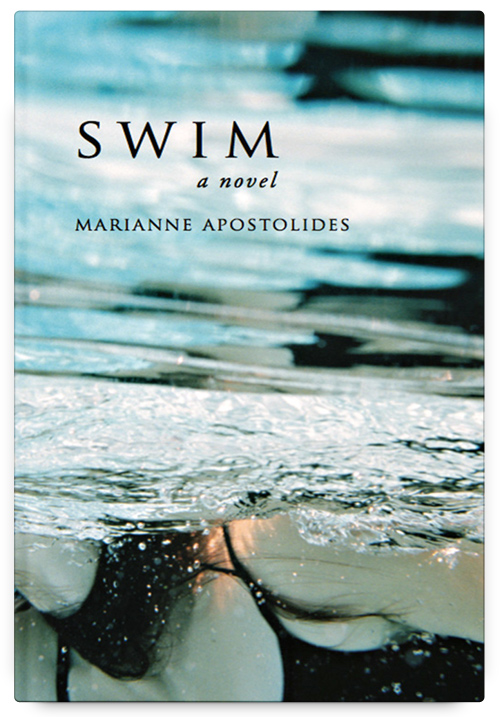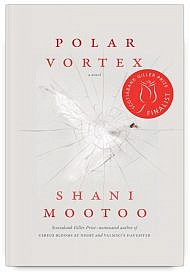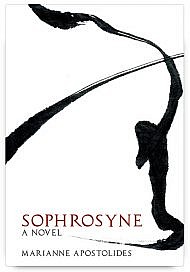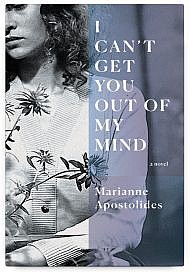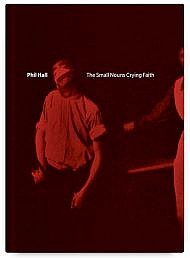Breathe on four. Define your terms. What is this desire?
Attuned to a body in motion, Swim pulls the reader beneath the logic of prose, into the eroticism of language itself. The arcing rhythm of a body breathing—a woman marking her birth as she swims in a pool—sustains the unique and hypnotic language that becomes the medium through which this story moves.
Swim entwines the present with those past actions and consequences that have brought Kat to the Greek mountain village where her father was born. She swims laps while her fourteen-year-old daughter reclines on a chaise lounge, poolside, reading a book. Without ever leaving the pool we enter discrete scenes with Kat’s parents, daughter, husband and lover. On entering each point in this history, Kat reveals an undertow of sound, rhythm and words in their rippling meanings. Each new lap moves Kat closer to her impending decision: whether she will leave her husband. But the deeper tension within this innovative novel derives from the writing itself—its vital urgency that extends the possibilities of narrative beyond the fixed and into the fluid.
Praise for Swim
‘Best Books Ever’ Selection for Girls Can Create
“Brilliantly structured stream-of-consciousness novel…. Fans of lyric prose will savour this intelligent, finely crafted text.” —Jodi Lundgren, Canadian Literature
“This is a passionate, longing prose of elemental heartbreak, a physical and pounding prose of the body and heart, with echoes sweeping through of the late Elizabeth Smart’s groundbreaking By Grand Central Station I Lay Down and Wept, with an ending that glows.” —rob mclennan’s blog
“Apostolides seamlessly blends the past, the present, the mind, the body, and the inter-text.” —Kerry Clare, 49th Shelf
“This excellent, brief, first novel both deters and delights within the first few pages. The language and voicing are infected by unwanted punctuation—dashes and slashes—and by intrusive 20th-century French thought. Let’s clear this initial impression out of the way. The author’s thorough command of this contemporary consciousness soon overrides any misgivings or biases the reader might have, and we are propelled into the artful fluidity of the novel.” —Malcolm Sutton, The Globe and Mail
Marianne Apostolides is a writer and critic whose first book was published by W.W. Norton and translated into Spanish and Swedish. Her current writing explores the ‘contact zone’ between genres—poetry vs. prose, fiction vs. non-fiction, creative vs. critical; it has appeared in The Walrus, Room, and Bookninja.com, among other publications. She lives in Toronto with her two children.

